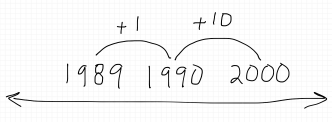People who ask why calculators don't resolve the (very low-level) issues well enough are quite accurate in their skepticism, I think, which makes it hard to present an "absolutist" defense of alternatives. For that matter, seriously (!), why is it ok to use Hindu-Arabic numerals and the weird associated algorithms, rather than "honest" manipulations of hash-marks or pebbles? (As a kid, I was required to do a bit of arithmetic in Roman numerals... ah, a lost art!?!) As a small kid, I did do quite a lot of seat-of-the-pants arithmetic by visualizing dots or marks, e.g., multiplication of small integers, while resisting memorizing multiplication tables, and even resisting, for a time, the algorithms. :)
Indeed, schools don't explain why these algorithms work, and, thus, could be claimed to exactly fail to teach "understanding". What they teach is execution of algorithms with a certain interface.
My point is that the defense of learning how to manipulate the standard algorithms with Hindu-Arabic numerals cannot be mathematical, cannot be absolutist, but can only refer to particular contexts, _if_any_, in which there is some immediate, practical advantage. Not fake in-principle advantages, not marooned-on-desert-island advantages.
In particular, it is hard to defend a claim that the standard algorithms with Hindu-Arabic numerals give "understanding" more operational than facility with a calculator. Although I once would have claimed so, I capitulated at a point when each month's bank statement had 50 checks, and my (on the whole very quick and accurate) mental or on-paper standard calculations simply had too many chances to fail... while my wife's (for professional reasons) extreme facility doing arithmetic on a calculator did truly afford a much lower error-rate. For 20 years, I have not checkbook-balanced by hand.
And, since I am essentially always near a computer, if I need to do any computation (numerical or otherwise) beyond a certain very, very low complexity, I fire up Python or Sage or...
The immediate defenses of learning the standard things are just two, and somewhat flimsy: first, many older people will judge one on this, and this (dubious) expertise will be used as a filter/weeder (as in the "do you want to be a manual laborer?" defense), and, second, for a person interested in science/technology, much older literature (and other context) assumes familiarity with such stuff, as implied context. The latter reason to pay attention is less invidious than the former.
In reality, I (as a professional mathematician) think there's scant reason to pretend, especially to small kids, that there are absolutist reasons to acquire facility in execution of visibly peculiar algorithms in manipulation of Hindu-Arabic numerals... even though "all the old people" know these things. Any sensible kid will believe anything else you say less after any kind of rant that attempts to claim that they shouldn't depend on computers, much less calculators.
A similar issue arises in having the first-year calculus be so caricatured that many different software packages, many "free/open", can do it all far better. That is, what the heck should we convert these courses to... rather than be foot-draggers and insist on a highly antique, stylized, unconnected-to-reality drill that few of the participants take seriously?
Indeed, the real problem, to my perception, is that as machines can do more and more algorithmic things, the "easy" (algorithmic) stuff that once was a fine human province is no longer available. Only more difficult things are left... and it becomes ever more difficult to pretend that we'll insist that the whole population learn lots of things that machines cannot do. An awkward situation.
Summary: I'd recommend not trying to defend any prohibition of calculators. Rather, grant calculators, and then you can ask the next level of questions. When the kid gets access to and learns how to use symbol-manipulation software, then those issues, too, are taken for granted, etc.
Yes, I know, your local curricular constraints... Still, I do often find that clearing one's head by thinking what would make sense if there were not random exogenous constraints is, first, soothing, and, second, does put the necessary compromises in perspective. :)
